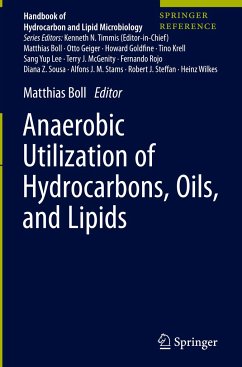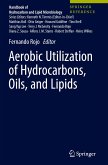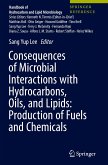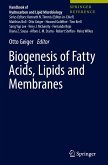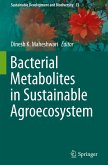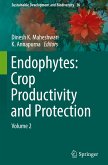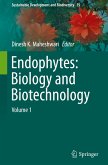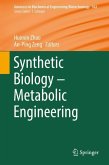Anaerobic Utilization of Hydrocarbons, Oils, and Lipids
Herausgegeben:Boll, Matthias
Anaerobic Utilization of Hydrocarbons, Oils, and Lipids
Herausgegeben:Boll, Matthias
- Gebundenes Buch
- Merkliste
- Auf die Merkliste
- Bewerten Bewerten
- Teilen
- Produkt teilen
- Produkterinnerung
- Produkterinnerung
The book uniquely covers all aspects of anaerobic biodegradation of the environmentally important hydrocarbons. The contributions by international experts cover the molecular characterization of unique biocatalysts for oxygen-independent C-H-bond functionalization, the identification of unifying concepts, and the presentation of state-of-the-art methodologies. The current knowledge of the global importance of anaerobic hydrocarbon degradation is highlighted.
Andere Kunden interessierten sich auch für
![Aerobic Utilization of Hydrocarbons, Oils, and Lipids Aerobic Utilization of Hydrocarbons, Oils, and Lipids]() Aerobic Utilization of Hydrocarbons, Oils, and Lipids177,99 €
Aerobic Utilization of Hydrocarbons, Oils, and Lipids177,99 €![Consequences of Microbial Interactions with Hydrocarbons, Oils, and Lipids: Production of Fuels and Chemicals Consequences of Microbial Interactions with Hydrocarbons, Oils, and Lipids: Production of Fuels and Chemicals]() Consequences of Microbial Interactions with Hydrocarbons, Oils, and Lipids: Production of Fuels and Chemicals265,99 €
Consequences of Microbial Interactions with Hydrocarbons, Oils, and Lipids: Production of Fuels and Chemicals265,99 €![Biogenesis of Fatty Acids, Lipids and Membranes Biogenesis of Fatty Acids, Lipids and Membranes]() Biogenesis of Fatty Acids, Lipids and Membranes362,99 €
Biogenesis of Fatty Acids, Lipids and Membranes362,99 €![Bacterial Metabolites in Sustainable Agroecosystem Bacterial Metabolites in Sustainable Agroecosystem]() Bacterial Metabolites in Sustainable Agroecosystem121,99 €
Bacterial Metabolites in Sustainable Agroecosystem121,99 €![Endophytes: Crop Productivity and Protection Endophytes: Crop Productivity and Protection]() Endophytes: Crop Productivity and Protection121,99 €
Endophytes: Crop Productivity and Protection121,99 €![Endophytes: Biology and Biotechnology Endophytes: Biology and Biotechnology]() Endophytes: Biology and Biotechnology161,99 €
Endophytes: Biology and Biotechnology161,99 €![Synthetic Biology ¿ Metabolic Engineering Synthetic Biology ¿ Metabolic Engineering]() Synthetic Biology ¿ Metabolic Engineering265,99 €
Synthetic Biology ¿ Metabolic Engineering265,99 €-
-
-
The book uniquely covers all aspects of anaerobic biodegradation of the environmentally important hydrocarbons. The contributions by international experts cover the molecular characterization of unique biocatalysts for oxygen-independent C-H-bond functionalization, the identification of unifying concepts, and the presentation of state-of-the-art methodologies. The current knowledge of the global importance of anaerobic hydrocarbon degradation is highlighted.
Produktdetails
- Produktdetails
- Handbook of Hydrocarbon and Lipid Microbiology
- Verlag: Springer / Springer International Publishing / Springer, Berlin
- Artikelnr. des Verlages: 978-3-319-50390-5
- 1st ed. 2020
- Seitenzahl: 428
- Erscheinungstermin: 12. März 2020
- Englisch
- Abmessung: 241mm x 160mm x 27mm
- Gewicht: 826g
- ISBN-13: 9783319503905
- ISBN-10: 3319503901
- Artikelnr.: 46895099
- Herstellerkennzeichnung Die Herstellerinformationen sind derzeit nicht verfügbar.
- Handbook of Hydrocarbon and Lipid Microbiology
- Verlag: Springer / Springer International Publishing / Springer, Berlin
- Artikelnr. des Verlages: 978-3-319-50390-5
- 1st ed. 2020
- Seitenzahl: 428
- Erscheinungstermin: 12. März 2020
- Englisch
- Abmessung: 241mm x 160mm x 27mm
- Gewicht: 826g
- ISBN-13: 9783319503905
- ISBN-10: 3319503901
- Artikelnr.: 46895099
- Herstellerkennzeichnung Die Herstellerinformationen sind derzeit nicht verfügbar.
Matthias Boll studied Biology at the University of Freiburg and started his Ph.D. thesis in the group of Prof. Dr. Georg Fuchs at the University of Ulm and finished his thesis on dearomatizing benzoyl-CoA reductases at the University of Freiburg. He stayed as postdoctoral researcher in the group of Dr. David Lowe, John Innes Centre, Norwich, UK, where he performed spectroscopic studies on different metalloenzymes. Back at the University of Freiburg, he started his own research group and received his habilitation in the field of Microbiology. In 2006 he received a full professorship at the University of Leipzig in the Institute of Biochemistry where he studied basic and applied environmental aspects of anaerobic degradation of aromatic compounds. Since 2012 he has a full professorship at the University of Freiburg, where he was responsible for the newly established B.Sc. and M.Sc. studies. From 2008 to 2014 M. Boll was the principle coordinator of the Scientific Priority Program of the Germany Research Foundation (DFG) SPP1319: "Biological transformation of hydrocarbons without oxygen: from the molecular to the global scale." He is in an internationally leading position in the field of biochemistry and metabolism of anaerobic degradation of aromatic compounds and steroids. M. Boll has authored around 100 articles in journals such as Nature Chemical Biology, Nature Communications, PNAS, Journal of the American Chemical Society, Angewandte Chemie, and ISME Journal.
Part I: Biochemistry of Anaerobic Degradation of Hydrocarbons Anaerobic Degradation of Hydrocarbons: Mechanisms of Hydrocarbon Activation in the Absence of Oxygen.- Catabolic Pathways and Enzymes Involved in Anaerobic Methane Oxidation.- Catabolic Pathways Involved in the Anaerobic Degradation of Saturated Hydrocarbons.- Catabolic Pathways and Enzymes Involved in the Anaerobic Degradation of Monocyclic Aromatic Compounds.- Catabolic Pathways and Enzymes Involved in the Anaerobic Degradation of Polycyclic Aromatic Hydrocarbons.- Catabolic Pathways and Enzymes Involved in the Anaerobic Degradation of Terpenes.- Anaerobic Biodegradation of Steroids.-
Part II: Functional Genomics of Anaerobic Degradation of Hydrocarbons Functional Genomics of Anaerobic Degradation of Hydrocarbons: An Introduction.- Functional Genomics of Denitrifying Bacteria Degrading Hydrocarbons.- Functional Genomics of Sulfate-Reducing Bacteria Degrading Hydrocarbons.- Functional Genomics of Metal-Reducing Microbes Degrading Hydrocarbons.-
Part III: Ecophysiology and Diversity of Anaerobic Hydrocarbon Degradation Next-Generation Sequencing of Functional Marker Genes for Anaerobic Degraders of Petroleum Hydrocarbons in Contaminated Environments.- Protein-based Stable Isotope Probing (protein-SIP): Applications for Studying Aromatic Hydrocarbon Degradation in Microbial Communities.- Compound-Specific Isotope Analysis for Studying the Biological Degradation of Hydrocarbons.- Compound-specific Stable Isotope Analysis (CSIA) for Evaluating Degradation of Organic Pollutants - An Overview of Field Case Studies.- Signature Metabolite Analysis to Determine In Situ Anaerobic Hydrocarbon Biodegradation.- Anaerobic Methane Oxidation in Freshwater Environments.-
Part II: Functional Genomics of Anaerobic Degradation of Hydrocarbons Functional Genomics of Anaerobic Degradation of Hydrocarbons: An Introduction.- Functional Genomics of Denitrifying Bacteria Degrading Hydrocarbons.- Functional Genomics of Sulfate-Reducing Bacteria Degrading Hydrocarbons.- Functional Genomics of Metal-Reducing Microbes Degrading Hydrocarbons.-
Part III: Ecophysiology and Diversity of Anaerobic Hydrocarbon Degradation Next-Generation Sequencing of Functional Marker Genes for Anaerobic Degraders of Petroleum Hydrocarbons in Contaminated Environments.- Protein-based Stable Isotope Probing (protein-SIP): Applications for Studying Aromatic Hydrocarbon Degradation in Microbial Communities.- Compound-Specific Isotope Analysis for Studying the Biological Degradation of Hydrocarbons.- Compound-specific Stable Isotope Analysis (CSIA) for Evaluating Degradation of Organic Pollutants - An Overview of Field Case Studies.- Signature Metabolite Analysis to Determine In Situ Anaerobic Hydrocarbon Biodegradation.- Anaerobic Methane Oxidation in Freshwater Environments.-
Part I: Biochemistry of Anaerobic Degradation of Hydrocarbons Anaerobic Degradation of Hydrocarbons: Mechanisms of Hydrocarbon Activation in the Absence of Oxygen.- Catabolic Pathways and Enzymes Involved in Anaerobic Methane Oxidation.- Catabolic Pathways Involved in the Anaerobic Degradation of Saturated Hydrocarbons.- Catabolic Pathways and Enzymes Involved in the Anaerobic Degradation of Monocyclic Aromatic Compounds.- Catabolic Pathways and Enzymes Involved in the Anaerobic Degradation of Polycyclic Aromatic Hydrocarbons.- Catabolic Pathways and Enzymes Involved in the Anaerobic Degradation of Terpenes.- Anaerobic Biodegradation of Steroids.-
Part II: Functional Genomics of Anaerobic Degradation of Hydrocarbons Functional Genomics of Anaerobic Degradation of Hydrocarbons: An Introduction.- Functional Genomics of Denitrifying Bacteria Degrading Hydrocarbons.- Functional Genomics of Sulfate-Reducing Bacteria Degrading Hydrocarbons.- Functional Genomics of Metal-Reducing Microbes Degrading Hydrocarbons.-
Part III: Ecophysiology and Diversity of Anaerobic Hydrocarbon Degradation Next-Generation Sequencing of Functional Marker Genes for Anaerobic Degraders of Petroleum Hydrocarbons in Contaminated Environments.- Protein-based Stable Isotope Probing (protein-SIP): Applications for Studying Aromatic Hydrocarbon Degradation in Microbial Communities.- Compound-Specific Isotope Analysis for Studying the Biological Degradation of Hydrocarbons.- Compound-specific Stable Isotope Analysis (CSIA) for Evaluating Degradation of Organic Pollutants - An Overview of Field Case Studies.- Signature Metabolite Analysis to Determine In Situ Anaerobic Hydrocarbon Biodegradation.- Anaerobic Methane Oxidation in Freshwater Environments.-
Part II: Functional Genomics of Anaerobic Degradation of Hydrocarbons Functional Genomics of Anaerobic Degradation of Hydrocarbons: An Introduction.- Functional Genomics of Denitrifying Bacteria Degrading Hydrocarbons.- Functional Genomics of Sulfate-Reducing Bacteria Degrading Hydrocarbons.- Functional Genomics of Metal-Reducing Microbes Degrading Hydrocarbons.-
Part III: Ecophysiology and Diversity of Anaerobic Hydrocarbon Degradation Next-Generation Sequencing of Functional Marker Genes for Anaerobic Degraders of Petroleum Hydrocarbons in Contaminated Environments.- Protein-based Stable Isotope Probing (protein-SIP): Applications for Studying Aromatic Hydrocarbon Degradation in Microbial Communities.- Compound-Specific Isotope Analysis for Studying the Biological Degradation of Hydrocarbons.- Compound-specific Stable Isotope Analysis (CSIA) for Evaluating Degradation of Organic Pollutants - An Overview of Field Case Studies.- Signature Metabolite Analysis to Determine In Situ Anaerobic Hydrocarbon Biodegradation.- Anaerobic Methane Oxidation in Freshwater Environments.-

